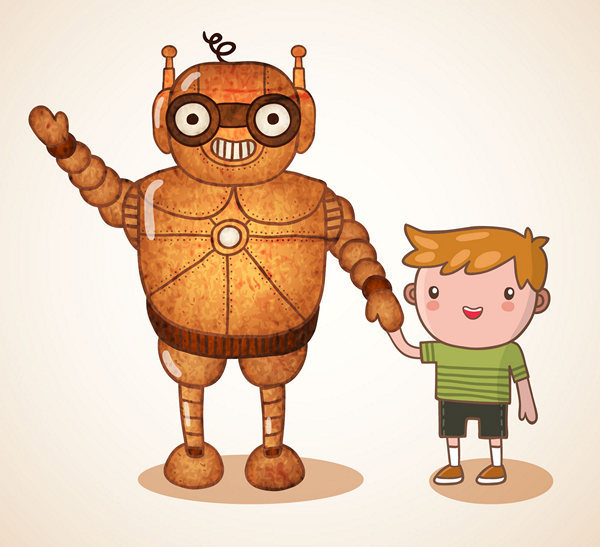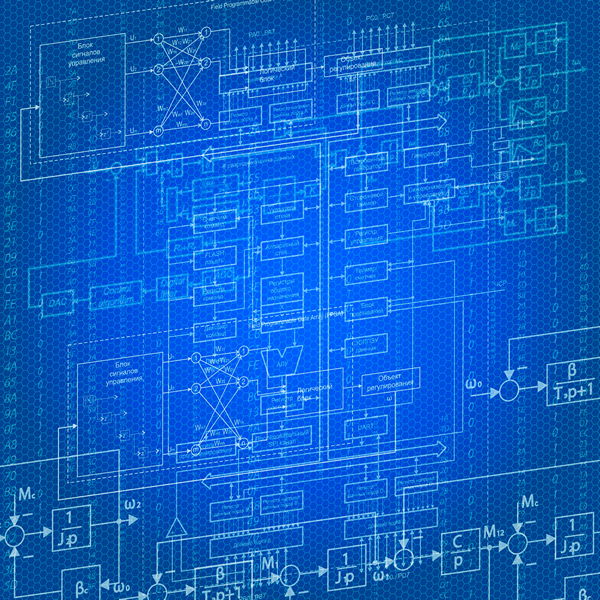Should robots teach children to talk?

As soon as we came up with the very concept of "robot", we began to dream about how robots would help us in everything. And not just to help, but to replace us in various fields of activity. Now it is understood that such complex robots will not appear soon. But we are striving for this by developing the technologies of artificial intelligence. And someday, the human dream of a universal robot, capable of washing dishes, going to the store, and looking after children, will come true. And you can keep an eye on in different ways. There is a great temptation to shove at the robot and not too pleasant duties for training the younger generation, including the very basics. For example, nanny robots could not only make sure that the charges did not get hurt, were fed in clean shorts. All the same, because they sit with the child, so let them teach, for example, to talk. And here a problem arises.
Its essence is not at all in the way these robots will look, their shape can be any - even a box on wheels. No, everything is much deeper and more complicated. Teaching child speech is based on certain algorithms. And these algorithms can not be neutral, they will always reflect the culture, ideology, life principles, philosophy, finally, those people who develop them. And is it worth trusting the formation of a culture of speech to unknown people, perhaps ideological alien?
Any algorithm, as you know, is a set of instructions that must be followed in a given order. Of course, you can not do this, but in the future, when robotics will become more developed, and we will be surrounded by the Internet of things, helpfully predicting our needs and desires, we are unlikely to start thinking about such issues. The overwhelming majority of people will gladly accept the offer of the robot (read, computer) to help in teaching the child.
')
However, is it worth blindly trusting any training programs of any kind, created according to methods developed by someone unknown? This question can be asked now, without waiting for the onset of a bright robotic future. Already there are many educational applications for children in literature, foreign languages, history. And we never ask ourselves what life principles are carried by people whose algorithms formed the basis of these applications. As in the future, few people would think about such, at first glance, ephemeral things, trusting a robot or computer to train their child.
The question of " ethics of algorithms " in relation to the education of children is much more relevant than it might seem. For example, the company Mattel, the manufacturer of the world-famous Barbie dolls, is developing a new model that can maintain an uncomplicated dialogue with the child. This will be possible due to the wireless connection of the doll to the cloud service, in which all the calculations will be performed. A sort of analog Siri for little girls. As a result, we get: a) a doll that does not know what the child can answer, and b) a device with a microphone that is constantly connected to the network and broadcasts everything that is happening around. How ethical is the creation of such a toy? Let us throw away the possibility of interception. It is obvious that hundreds of thousands or even millions of such dolls will “communicate” using certain algorithms. And children, by definition, are suggestible, they easily adopt speech turns, ways of building sentences and conducting conversation, vocabulary. Do you really think it a good idea to entrust the formation of social and speech skills of a plastic doll child and a bunch of unknown people who developed algorithms?

Manipulation with the help of algorithms is used all the time. For example, Twitter forms a ribbon of popular topics in such a way as to more often change the focus of public attention. On the one hand, it allows you to quickly forget about such controversial cultural phenomena as Gangnam Style and Justin Bieber. On the other hand, topics important for society and political events can also be quickly removed “from the stage” if they are not pleasing to someone. Moreover, this is by no means censorship, but only competent ranking algorithms.
Another famous example of manipulation with algorithms: last year, Facebook conducted an experiment on 700,000 users. The researchers decided to find out how the formation of the news feed affects the mood of Facebook users. For this, different ranking algorithms were used, thanks to which someone got the tape filled with pleasant and positive posts, and someone else - negative and repulsive.
There are many such studies. Too this is a seductive tool of influence - algorithms. Therefore, now we need to ask the question: how to protect children who are not able, in principle, to protect themselves from such manipulations? And how can we all defend ourselves from universal manipulation in the future?
In the consumer segment, you can not even consider the option of creating environments or devices in which each change requires the approval of the supervisor. This ruins the convenience and speed of use. However, there are a number of areas where the regulation of the algorithms used can still be implemented. For example, in the financial sector: automated stock trading systems have a very large impact on the economy, so the possibility of introducing control over the algorithmic component of these systems is already being discussed. It is possible that sooner or later the same thing will happen with Internet search engines, too often scandals arise with the same Google in different countries.
Ethics in the development of algorithms is not a far-fetched problem from fiction about robots. With the expansion of the network algorithms will become increasingly important, gradually forming our society. Perhaps it is time to discuss the future rules of the game.
Source: https://habr.com/ru/post/259867/
All Articles